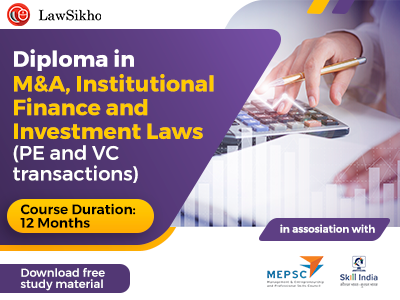This article is written by Aritra Mitra.
Table of Contents
Introduction
The Union government via an order dated 17.08.2020, notified the Insolvency and Bankruptcy Code (Second Amendment) Act, 2018, which introduced Section 238A into the Act. The primary intention behind it was to apply provisions of Limitation Act, 1963 to IBC proceedings. Section 238A helped in ensuring that IBC was not used to give time-barred debts a ‘second lease of life’. Over the last few years, the interaction between the IBC and the Limitation Act has posed several questions of law, including whether entries in the Balance Sheet amounted to acknowledgment of debt to extend limitation period under Section 18 of Limitation Act, 1963. Section 18 uses the term ‘acknowledgement’ to mean an admission of an existing liability in lieu of which the period of limitation is extended, after certain conditions are fulfilled.
In a judgment of Asset Reconstruction Company (India) Ltd v. Bishal Jaiswal & Anr. dated 15th April 2021, the Hon’ble Supreme Court decided upon this very crucial issue.
In this significant judgment the Supreme Court took cognizance of the fact that even though Balance Sheet filing is under the ambit of the statutory requirement of the Companies Act, 2013, the same thing can be said to be amounting to acknowledgment of debt, considering the factual matrix of each case. In this judgment the Supreme Court also set aside the majority decision given by the National Company Law Tribunal (NCLAT) in the case of V. Padmakumar v. Stressed Assets Stabilisation Fund.
Factual Matrix
The appellant i.e., of Asset Reconstruction Company (India) Ltd filed an application under the provisions of Section 7 of Insolvency & Bankruptcy Code, 2016 for the Corporate Insolvency Resolution Process (CIRP) to be initiated against Corporate Power Ltd. NCLT, Kolkata admitted the application after observing that the liability was acknowledged by the Corporate Debtor before the expiry of the limitation period of three years from the date of default and thus, the Section 7 Application was not barred by any limitation.
Bishal Jaiswal, a suspended director of Corporate Power Ltd. filed an appeal against the order given by the NCLT. In his appeal he relied upon V. Padmakumar v. Stressed Assets Stabilisation Fund & Anr. In this case it was held that entries in a Balance Sheet did not amount to an acknowledgment of debt under Section 18 of Limitation Act. Thus, contended that the application filed by ARCIL under Section 7 of Insolvency & Bankruptcy Code, 2016 was prevented by limitation.
The three-member bench of NCLAT doubted the judgment passed by five-member bench of NCLAT in V. Padmakumar. After observing V. Padmakumar, the Court decided that it required reconsideration for observing that entries in a Balance Sheet do not amount to an acknowledgement of debt in terms of Section 18 of the Limitation Act. After due consideration, the three-judge bench passed a reference order for a five-member bench to be constituted to reconsider majority decision in V. Padmakumar.
The reference was then heard by a five-judge bench, where it was observed that Section 18 of the Limitation Act would not apply to the proceedings taking place under the ambit of Insolvency & Bankruptcy Code, 2016.
Aggrieved by the order, ARCIL filed an appeal before the apex court. While hearing this appeal, the Supreme Court also heard appeals against NCLAT’s judgment in V. Padmakumar.
Judgment
Applicability of Section 18 of the Limitation Act to IBC
Section 238A of the IBC enables the provisions of Limitation Act to be applicable to the proceedings taking place before the NCLAT and NCLT. The Court held that there is nothing mentioned in the Section preventing Section 18 of Limitation Act to be applied to IBC. To strengthen their conclusion the Court relied upon Laxmi Pat Surana v Union Bank of India and Sesh Nath Singh and Anr. v Baidyabati Sheoraphuli Cooperative Bank Ltd., where Section 18 was applied to IBC proceedings.
Acknowledgment of Debt Under Section 18
In deciding upon the issues at hand, the Hon’ble Supreme Court relied upon various judgments which was not limited to Mahabir Cold Storage v. CIT, Jignesh Shah v. Union of India, AV Murthy v. BS Nagabasavanna. The apex court also stated that the minority judgment in V. Padmakumar had raised the accurate contention and thus the court set aside the majority judgment.
Intention of Acknowledgment of Debt
Deciding upon the relevancy of intention in acknowledgment of debt, the Supreme Court held that there is no such requirement as long as a jural relationship can be established between the creditor and debtor. The Court also relied upon Khan Bahadur Mazda v Durga Prasad in reaching this conclusion.
Statutory Requirement
The Court relying upon the judgment of Calcutta High Court in Bengal Silk Mills Co v. Ismail Golam Hossain Ariff, observed that filing of a Balance Sheet in accordance to the provisions laid under Companies Act, 2013 is undoubtedly a mandate and can be made punishable by law if not followed. However, determining whether or not the filing has been done in accordance to Companies Act can only be possible by examining the factual matrices of each case, in order to find out whether an entry made in a balance sheet qua any particular creditor is unequivocal or has been entered into with caveats. The Court held that an entry in relation to a debt will not qualify as an acknowledgment under Section 18 and every entry needs to viewed in the context it takes place. These caveats could be in the form of notes to accounts or other qualifications made in the balance sheets.
Approval by Shareholders and Directors
Relying upon Calcutta High Court’s judgment in Pandem Tea Co. Ltd., In re, the Supreme Court held that for validation of a particular balance sheet, it has to be necessarily approved by shareholders and also get a report from the Directors.
Analysis
In this judgment, the Supreme Court clarified that entries in a Balance sheet do indeed amount to acknowledgement of debt for the purpose of extending the limitation period under Section 18 of the Limitation Act. It had been unnecessarily made complex by conflicting judgments of the NCLAT. But the Supreme Court has finally clarified which factors are needed to be necessarily undertaken to confirm whether an entry in the Balance Sheet can be seen as an acknowledgment under Section 18 of the Limitation Act. One of the factors was whether or not the entries in the balance sheet are accompanied by a caveat regarding it being an acknowledgment of debt. If so, then it would require an analysis by a court or tribunal of the factual matrix of the particular case in order to arrive at a conclusion regarding the applicability of Section 18 of the Limitation Act. This is beneficial in the sense that it provides a level playing field to the debtors and creditors, because making repayments as per timeline is not always possible, thus emerges the concept of acknowledgment of debt.
Debtors acknowledge the debt owed by them and also provide some kind of assurance to their creditors as a promise of repayment. The NCLAT judgment would have jeopardized the concept as it prevented such acknowledgments. The Supreme Court’s decision comes as a welcome move. It is also significant for creditors to ensure that any written communication from their side ticks all the boxes of a valid acknowledgment and also an entry in a creditor’s balance sheet should not subject to qualifications in the notes to the balance sheet or Auditors Report, for the same to extend the period of limitation from the date of acknowledgement.
The judgment also lacks a discussion upon certain important aspects, like it does not discuss the situation in which the debtor, who has made the entry in the Balance Sheet, also makes a counterclaim against the creditor. Even if the situation has been clearly dealt with through the explanation provided by Section 18 of the Limitation Act which clearly states that the acknowledgment may be accompanied by a refusal to deliver, perform, pay, or allowance to enjoy, or is coupled with a claim to set-off.
A counterclaim may be relevant for consideration of the overall liability of the debtor but it would not be of much use in determining whether an entry in the Balance Sheet can be considered as an acknowledgment under Section 18 of the Limitation Act. Furthermore, the judgment also fails in clarifying whether an entry in the “contingent liability” section amount to acknowledgement of debt for extension of the limitation period.
Conclusion
The Court’s interpretation is in accordance with Section 238A as well as previous judgments. This judgment helps in clarifying controversy regarding NCLAT judgments. Several operational and financial creditors, who were earlier prevented by NCLAT from initiating proceedings under IBC despite acknowledgment of debts in the balance sheet can now do so with the backing of Section 18 of the Limitation Act. Companies now should incorporate appropriate caveats highlighting the contingent nature of the entries.
LawSikho has created a telegram group for exchanging legal knowledge, referrals and various opportunities. You can click on this link and join:
 Serato DJ Crack 2025Serato DJ PRO Crack
Serato DJ Crack 2025Serato DJ PRO Crack











 Allow notifications
Allow notifications


